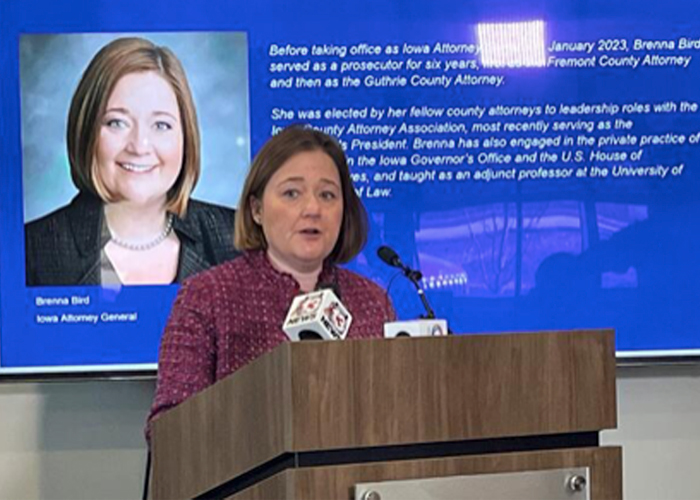
Iowa opioid prevention program sees ‘encouraging results,’ attorney general says

Our post-surgery RESULTS show real progress:
Average opioid use
Reduction in opioids
prescribed
Readmission Rate
Reduction in opioid
refill rate
Opioid overdoses are at an all-time high.
Each year there are ~3 BILLION PILLS leftover following surgery.
With a comprehensive yet straightforward approach, billions of opioid pills can be erased from our medicine cabinets, homes and communities.
Together we pledge to end this.
First dose prevention is particularly important at key gateways to opioid exposure for patients, families and communities.
SURGERY is a key gateway:
patients receive opioids
after surgery
of patients become opioid dependent after surgery
of patients have leftover
opioids after surgery
illegal opioid users began
with prescription
opioids, either their own or someone else’s
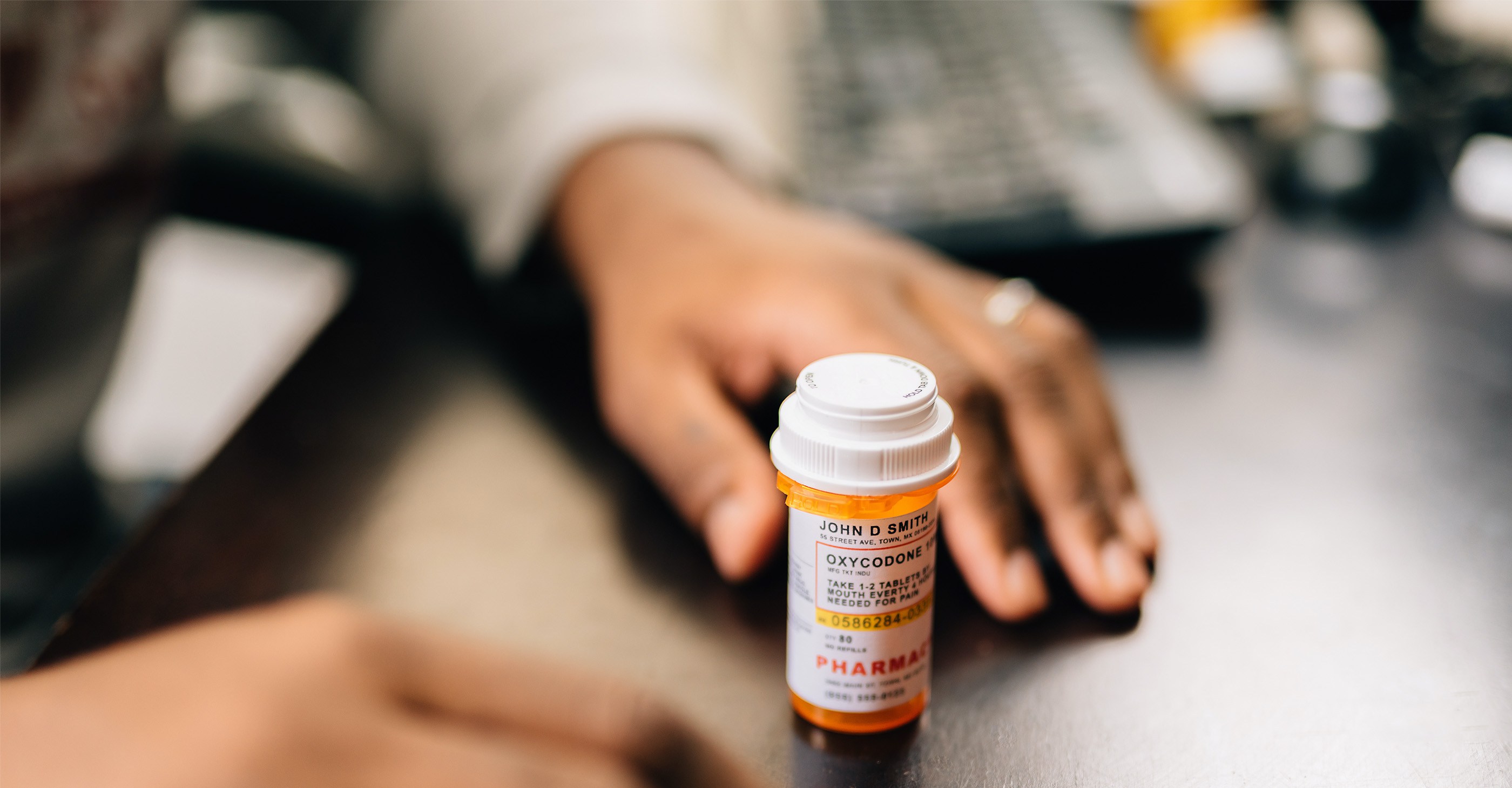
teens abusing prescription pain meds say they get them from family or friends.
Evidence-based, opioid-minimizing pain management plus a passion for community-based healthcare.
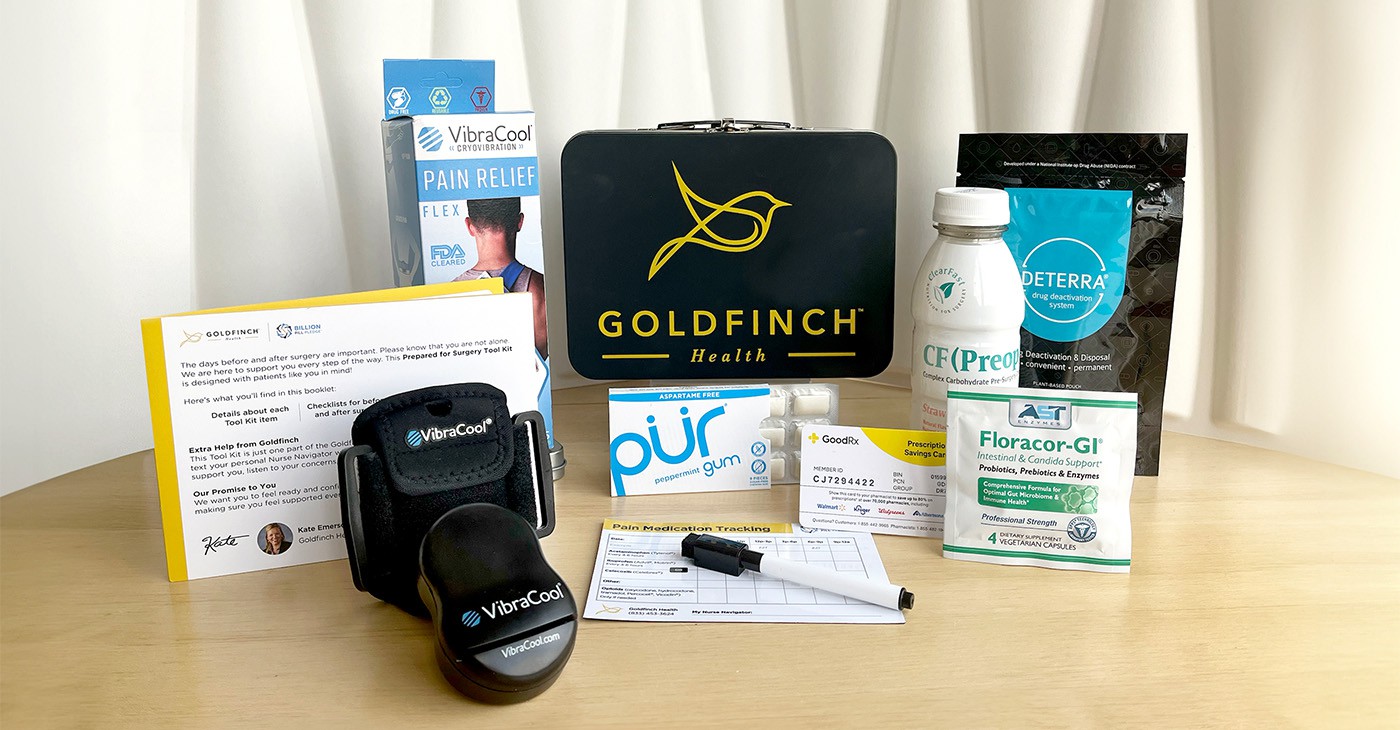
The Billion Pill Pledge program, powered by Goldfinch Health,
is designed to support community hospitals in enhancing surgical care to best in class protocols and educating on alternate pain management approaches called Enhanced Recovery.
As a part of this program, patients will have access to a Goldfinch nurse navigator who are experts in surgery and recovery. Patients will receive a Prepared for Surgery Tool Kit before surgery. This kit includes a number of items key to optimizing a patient’s surgery experience. Goldfinch nurses will also support patients during the critical period before and after surgery to help increase the use of opioid minimizing surgery protocols.
Education and implementation support to providers for delivery of care according to opioid-minimizing Enhanced Recovery protocols
Personalized pain management - emphasizing alternatives to opioids provided before the procedure even begins and on a scheduled basis after the operation - to improve patient outcomes and reduce exposure to opioids
Appropriate and convenient disposal of leftover opioids after surgery
The program helps hospitals overcome implementation challenges and establish a new baseline of optimized approaches.
Implementation of such practices have been shown to improve patient outcomes, save healthcare costs, and dramatically reduce the need for opioid pain medications after an operation.
Together we pledge to be better.
Where do patients go to determine if their hospital or provider will be providing opioid-minimizing surgery?
Historically, there has been no such directory available to help drive decisions in care. However, the Billion Pill Pledge has created the first of its kind directory of opioid minimizing surgical providers across the state to better inform patients, family members and employers/payers.
Map Legend
BPP Certified
Hospital has implemented Enhanced Recovery protocols and opioid prescribing in alignment with Johns Hopkins guidelines, and has achieved opioid refill rates under 10%.
Implementing
Hospital has signed a Letter of Understanding (LOU) and initiated the process to become BPP Certified.
Declined Implementation
Hospital has indicated it does not wish to participate.
With the involvement of Healthcare Providers and Patients, we can do this!
We all have the ability to impact and drive opioid first dose prevention. Through more widespread adoption of clinically-validated, opioid-minimizing Enhanced Recovery care pathways and thoughtful opioid prescribing, we can reduce the number of opioid pills in our homes and communities by a billion pills per year.
Sign the PLEDGE!
I Pledge to help our communities thrive by doing my part to reduce the number of opioid pills in our homes and in our medicine cabinets.
I Pledge to help our communities thrive by doing my part to reduce the number of opioid pills in our homes and in our medicine cabinets.
Together we can create action.
Billion Pill Pledge in the News

Iowa opioid prevention program sees ‘encouraging results,’ attorney general says
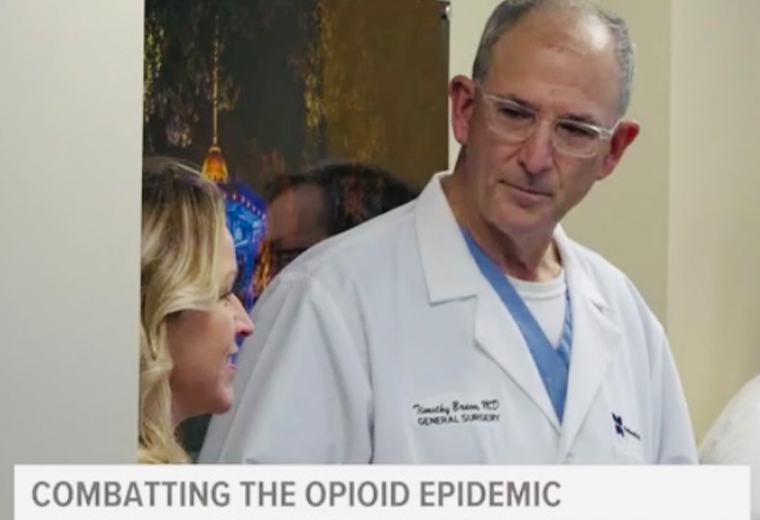
Mahaska Health, AG Brenna Bird confronting post-surgery opioid addictions in Iowa
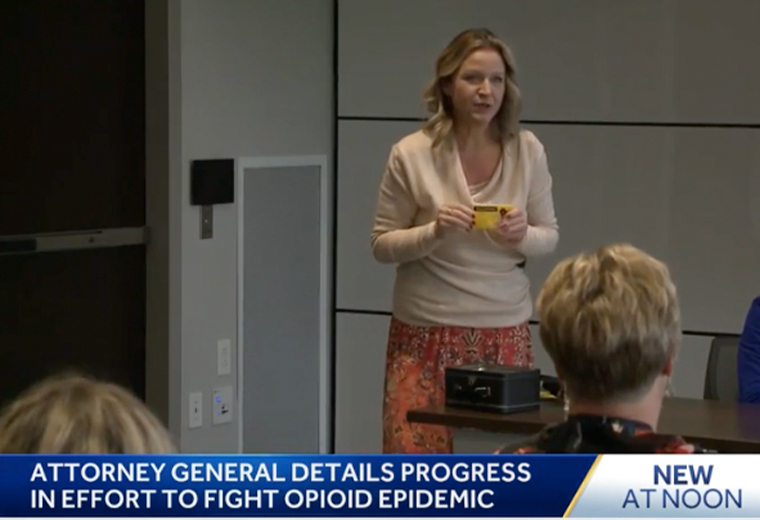
‘Billion Pill Pledge’: Iowa attorney general details progress in effort to fight opioid epidemic
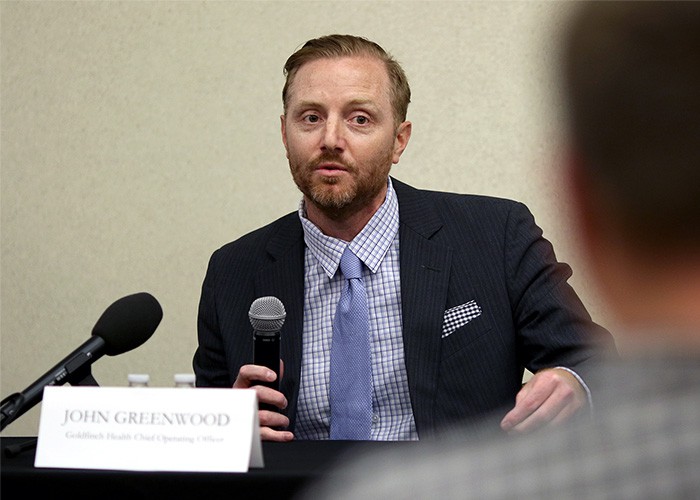
Iowa Capital Dispatch: “New state program can cut post-surgery opioid use by 70%.”
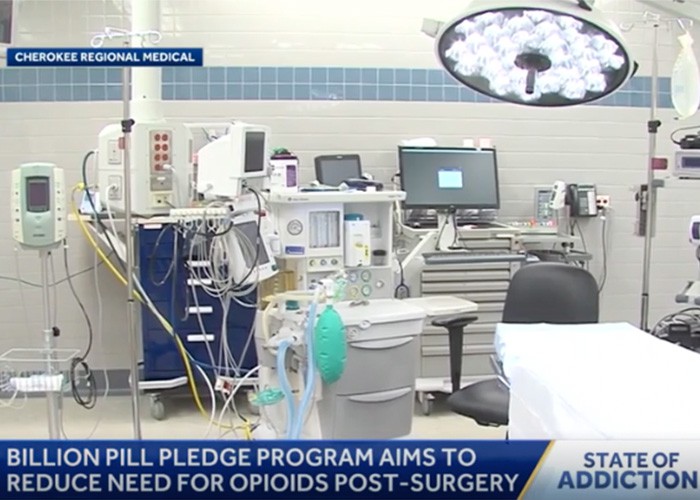
ABC (Omaha): Billion Pill Pledge program aims to reduce need for opioids post-surgery.
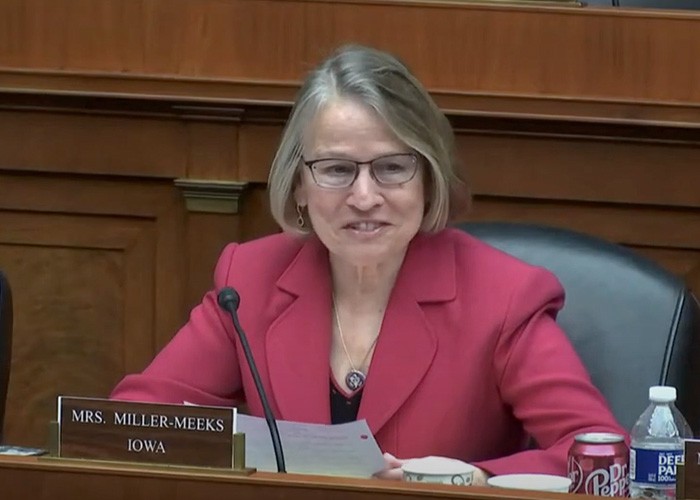
Congresswoman Miller-Meeks: Billion Pill Pledge program critical to reducing first dose opioid exposure (Energy & Commerce Health Subcommittee meeting).